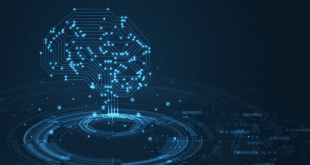Top 10 Ways Healthcare Can Use Generative AI
In the past few years, the healthcare industry has had to deal with several problems, such as inefficient administrative processes and difficult diagnoses. It needed cutting-edge technology that could change the whole business world. Artificial intelligence and its uses, especially generative AI in healthcare, have become a sign of hope for the healthcare field.
With its ability to change things, generative AI has completely changed the healthcare industry. A report says that by 2032, the global market for generative AI in healthcare will be worth $17.2 billion. These numbers show how generative AI has changed the healthcare field.
A lot of you may be curious about what this new technology is and how generative AI can be used in healthcare. Today, we will talk about generative AI and how it could change the healthcare industry in big ways.
What is generative AI?
Using artificial intelligence to make high-quality new content, like pictures, text, music, videos, and more, is called generative AI. It uses algorithms for machine learning to organize the data that is not structured. This type of unstructured data can include things like medical images, health records for patients, audio recordings of consultations, and more.
Moreover, it can automate manual processes, enhancing employee productivity. Forbes reports that generative AI has the potential to save the US medical sector a minimum of $200 billion in yearly expenditures.
Imaginative Ways to Use AI in Healthcare

The promising use cases of generative AI have transformed the healthcare industry. It has the potential to offer innovative solutions to a variety of medical challenges. Some pivotal use cases of generative AI in healthcare include:
-
Early Diagnosis
Generative AI in healthcare algorithms analyze extensive datasets to recognize patterns for disease detection. These datasets encompass medical images, lab tests, and other patient information. By leveraging predictive analysis and generative AI in healthcare, doctors can detect and diagnose diseases at earlier stages, thereby enhancing patient outcomes through more timely treatment planning and adjustments.
-
Automating administrative tasks
One of the most important generative AI use cases in healthcare is task automation. It lessens the strain of overseeing the physicians’ administrative responsibilities. Numerous important tasks, such as compiling patient data from medical records, recommending courses of action, creating patient feedback surveys, etc., can be automated. It makes things easier for everyone because it frees up doctors to concentrate more on patients and less on paperwork. Health Imaging
Medical imaging technologies are used by doctors to create images of our bodies’ internal structures. These technologies are critical for the detection, monitoring, and management of various illnesses.
Through high-resolution conversion, generative AI improves these photos. These sharp photos are more accurate and detailed. It improves the accuracy with which physicians and radiologists diagnose medical conditions in patients. Consequently, through accurate monitoring, patient care is improved.
-
Medication Discovery
One of the most well-known applications of generative AI in healthcare is drug discovery. The search for and development of new drugs takes a long time. Nonetheless, by quickly creating novel chemical compounds for particular illnesses, generative AI is completely changing the drug discovery process. It accomplishes this by examining information from many sources, such as clinical trials.
The creation of virtual compounds is one more way that generative AI is being used in drug discovery. It lowers the cost of finding a new drug and expedites the discovery process.
-
Restoring lost capabilities
Researchers at the University of Technology Sydney have created a system using generative AI that enables paralyzed individuals to communicate through brainwaves. The system translates the thoughts of paralyzed individuals into text, providing a means of communication for stroke or accident survivors and potentially improving the control of artificial limbs.
-
Personalized Medicine
Generative AI is revolutionizing healthcare through the analysis of complex genetic and molecular data. It assists healthcare providers in creating personalized treatment plans and offers evidence-driven suggestions for tailored treatments, thereby enhancing the decision-making process. These advanced applications of machine learning enable healthcare providers to utilize large amounts of data more effectively, leading to more accurate diagnoses and improved patient outcomes.
-
Synthetic medical data
Generative AI in healthcare is capable of creating synthetic medical datasets used to train machine learning models. These datasets can simulate a variety of medical conditions for training purposes, all without compromising patient privacy. This innovative technology empowers researchers and developers to train robust AI systems while respecting patient confidentiality. Additionally, it assists doctors in honing their diagnostic skills using simulated data.
-
Predictive Maintenance of Medical Instruments
Hospitals can utilize generative AI for predictive maintenance of medical instruments, allowing them to anticipate equipment failures and address issues proactively. This proactive approach not only saves money but also ensures that patients receive the necessary care with properly functioning medical equipment.
-
AI robots and voicebots

AI-powered robots play a crucial role in assisting doctors during surgical operations by providing guidance on surgical techniques and performing tasks such as stitching wounds and making incisions. Additionally, generative AI robots can serve as virtual companions for senior patients, helping to alleviate feelings of isolation. AI voicebots also support healthcare providers by increasing productivity and offering various services such as appointment reminders, language translation, and emergency response.
-
Mental health assessment
Generative AI is a valuable tool in mental health assessment, as it can analyze speech patterns, facial expressions, and other behavioral data to help identify signs of mental health disorders. This technology assists mental health professionals in detecting and treating individuals early, thereby improving the effectiveness of treatment.
Challenges of Generative AI
Although generative AI in healthcare offers numerous advantages, there may also be some drawbacks. These are a few difficulties facing generative AI:
Lack of Diversity: Generative AI models may produce repetitive outputs.
Training Data Bias: Generative models can inherit biases in the training data, leading to undesirable or unfair outputs.
Evaluation Metrics: Difficulty in developing accurate metrics to evaluate the quality and diversity of generated outputs objectively.
Scalability: Scaling generative models to handle larger datasets and higher resolutions in image generation without sacrificing performance is challenging.
Ethical Concerns: Generative AI may raise ethical concerns regarding its potential misuse.
Conclusion
The revolutionary potential of generative AI in healthcare has revolutionized the healthcare sector. Its transformative potential has been shown in a number of healthcare domains. Furthermore, it is clear from the variety of applications for generative AI that the advantages of this powerful technology far outweigh any potential drawbacks.
Are you prepared to use this cutting-edge technology to your company’s advantage? Xeven Solutions can help you learn more about generative AI or incorporate it into your current software. In this digital age, take advantage of our AI chatbot development services to obtain a competitive edge!
 Data Science in Digital Marketing Data Science in Digital Marketing: Mechanism Examples, Benefits Data Science Meets Digital Marketing Magic
Data Science in Digital Marketing Data Science in Digital Marketing: Mechanism Examples, Benefits Data Science Meets Digital Marketing Magic



